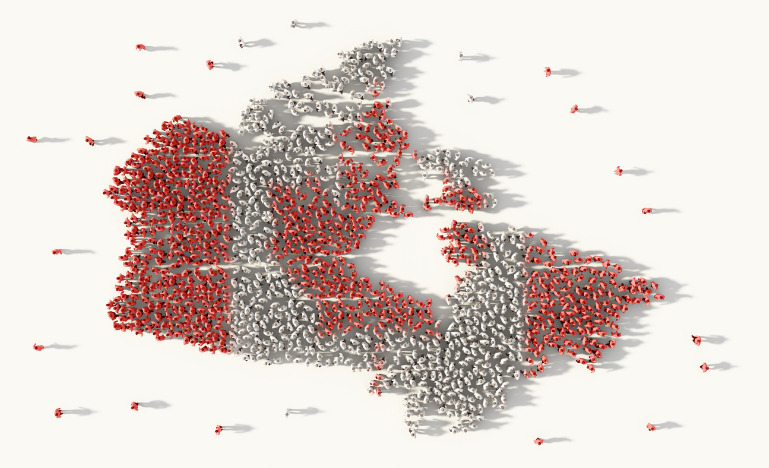Charter protections in pandemic times
A look at Charter rights breaches by governments since the beginning of COVID-19, and what proportionality means.

We've watched, during the global COVID-19 pandemic, governments across the country institute a suite of emergency measures in the name of public health and safety as concerns over rising infections gripped the public. But were all of those measures appropriate or proportional to the situation? The Canadian Bar Association is gathering a group of lawyers to discuss these issues for a webinar as part of their Law Series.
According to panellist Jamie Cameron, professor emeritus at Osgoode Hall Law School at York University in Toronto, some government actions have been concerning.
"The Charter guarantees a package of fundamental freedoms," says Cameron. "We tend to talk first and primarily and even exclusively about freedom of expression, and what that's always done is push some of the other relevant fundamental freedoms to the background and take the focus away from the way they work together as a collection of entitlements and a suite of rights."
"Freedom of association and freedom of peaceful assembly have been under-acknowledged in the history of the Charter," she says. "But they are a bit more front-and-centre stage in the discussion about different kinds of restrictions on gatherings and activities out in public, not to mention they surface automatically with the rise of peaceful protests we've seen in recent days," says Cameron.
Certainly, the public health concerns are going to win out when restrictions are placed on activities, she says. But that isn't to say people shouldn't pay attention to the nature, scope and duration of restrictions. And they shouldn't let down their guard on the usual standards on minimal impairment, and be suspicious of regulations that are too vague or overbroad.
Cameron is particularly alarmed with the suggestion bandied about by federal ministers about regulating misinformation on the pandemic.
"It would have to be so closely defined and tailored, because there is so much of a risk of overregulation and censorship," says Cameron. "The government may well abandon [the idea] because we're in a different space than we were eight weeks ago."
Panellist Abby Deshman, the director of criminal justice program with the Canadian Civil Liberties Association, says that the limits imposed during the pandemic have raised questions as to what are justifiable restrictions on people's rights during a public health emergency, as well as the kinds of enforcement.
"Some of the accounts we've received seem like they are infringing on people's rights not to be arbitrarily detained," she says. "We have privacy concerns with databases on people's health information that is now flowing to police, and we have a series of concerns around the Charter rights of different marginalized communities and what the various governments are doing to protect the lives and the health of those communities."
This can include people who are incarcerated, who are forced to rely on the shelter system for housing, where there has been a failure to act and take meaningful steps to protect the most vulnerable. Correctional Services of Canada failed to find ways to safely reduce the inmate populations to prevent the spread of the virus.
"We think there is a lot of room for improvement federally, and in the face of an unprecedented public health crisis, the failure to take action to try and supervise people in the community and allow more space in the institutions for those have to remain behind bars infringes Charter rights," says Deshman.
Some of the blame can be laid on overly broad and sloppily drafted legislation and orders, she says. Also, enforcement has been overbroad, particularly in jurisdictions where governments relied heavily on police and by-law enforcement rather than taking a public health education approach.
Panellist Arthur Grant, a partner with Grant Kovacs Norell in Vancouver, says that provinces setting up patrols at interprovincial border crossings highlights that the Charter rights around mobility have been under-served in Canadian jurisprudence.
"According to the interpretations afforded by the Supreme Court of Canada to it, in particular the interprovincial mobility rights have been read down to be very, very narrow," says Grant. "It didn't have to be, because if you read the French version of Section 6 [of the Charter], it's a much broader right that's conferred there than the English version."
Grant mentions the case of a BC resident who was prevented from moving to Prince Edward Island, and another in Newfoundland and Labrador, where a Nova Scotia woman was blocked from attending her mother's funeral.
Grant is also concerned about the kind of precedent these interprovincial border restrictions are setting.
"What happens when the economic interests of one province are impacted by the economic interests of another province?" asks Grant. "Will these COVID limitations be used to further economic interests as opposed to health interests? That's something we're going to have to be very careful about going into the future, because once you have a practice started, you can use it for improper purposes."
Grant says there still needs to be a measure of reasonableness put into place for mobility limitations, and that there also needs to be vigilance around societal actions, citing examples of people in BC defacing cars with Alberta licence plates.
"We still have to remember that we're a federation and we're a country," says Grant.


